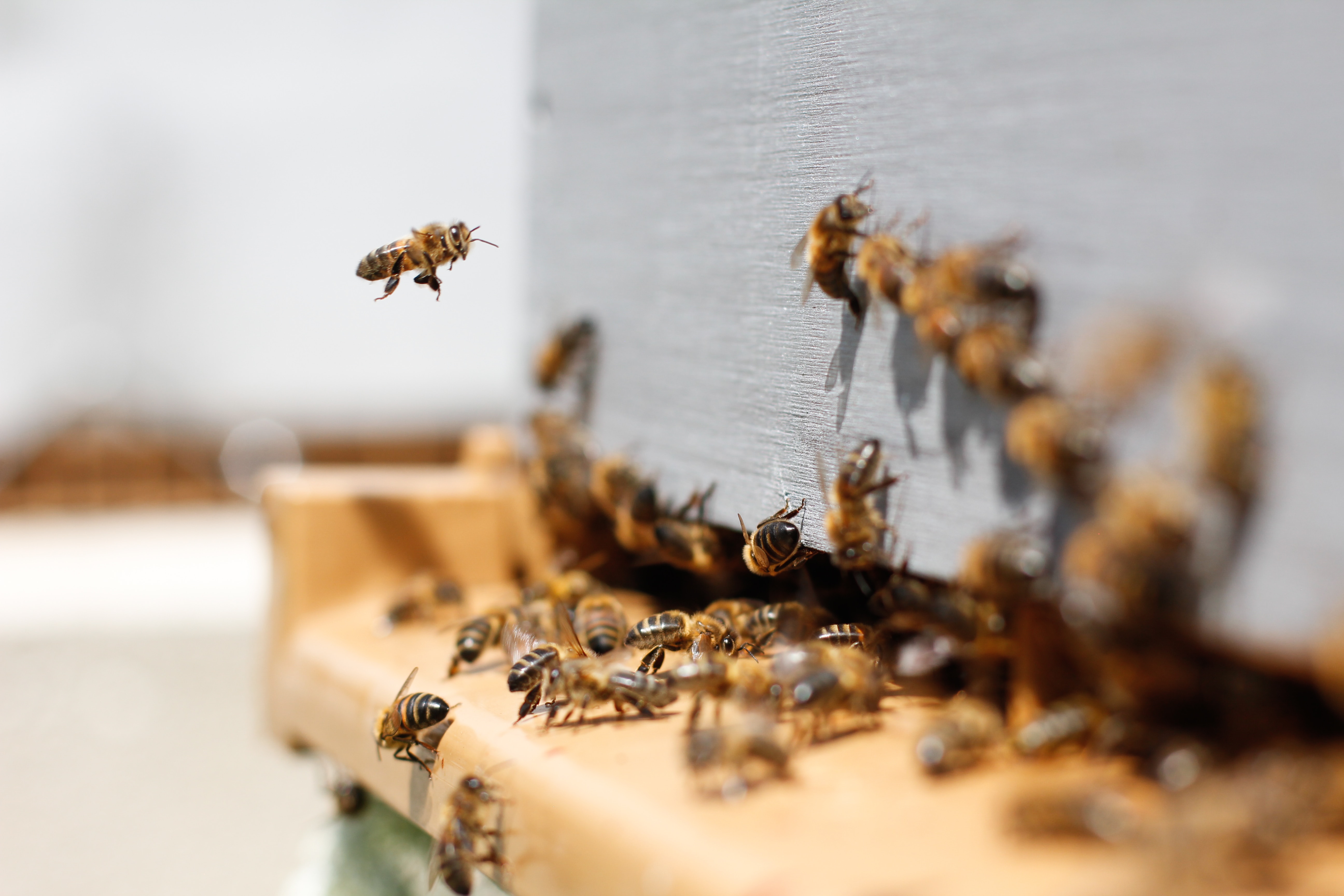May 20th was World Bee Day and the Tasmanian Institute of Agriculture (TIA) has been a hive of activity to raise awareness of the significance of bees and pollination.
Bees play an important role in the pollination of agricultural crops and are essential for the ongoing productivity and growth of the industry. “Bees are essential if we want to eat more than just potatoes and corn. They provide an important pollination role for many agricultural crops including apples, cherries and berries – they basically fill our fruit bowls,” said Dr Quarrell, an entomologist at TIA.
TIA is conducting multiple research projects to better understand how changes in agricultural practices, such as an increase in protected cropping systems, are impacting bee health and pollination.

Some of the exciting new research projects at TIA include:
Dr Stephen Quarrell is developing two planting guides to help Tasmanian land holders select the most appropriate native plant species to encourage pollinators on farms. The ‘Powerful Pollinators’ program aims to increase the prevalence, health and diversity of pollinators in the landscape.
TIA Research Fellow Dr Sandra Garland is collating the chemistry of Leatherwood and Tasmanian Manuka honey to input into the first-ever Australia-wide Honey Library coordinated through B-QUAL. This reference database will provide Tasmanian honey producers with proof of authenticity to support claims of uniqueness and provenance which are highly valued by consumers. This project has created a traceability link between consumers and beekeepers via Q-coded honey labels in an effort to combat honey fraud.
TIA PhD candidate Ryan Warren is using an insect-deployed Radio Frequency Identification (RFID) system he has developed to detect subtle changes in hive health by monitoring individual bee activity in full strength beehives. This is the first time an RFID system has been used on full-strength bee hives that contain more than 30,000 bees.
TIA PhD candidate MengYong is looking at the impact that fungicides used for plant disease in agricultural crops have on pollination including their impact on the viability of pollen carried by bees from flower-to-flower and how they affect bee behaviour and health. This includes bee gut health, which is linked to their ability to respond to many diseases.
The future of bees in Tasmania is now looking a bit brighter!
Check out the TIA website for more information!
